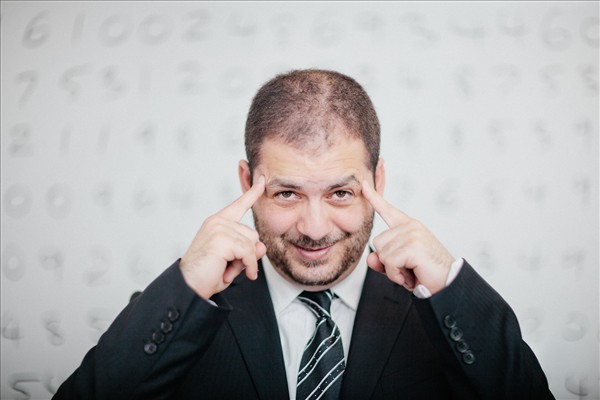In Melbourne, memory athletes open up shop

MELBOURNE -- Somewhere around 400 B.C., a Greek poet called Simonides was at a celebratory banquet, when a messenger announced that two young men were outside waiting to see him. When the poet went to meet them, nobody was there. As he turned back to the dining hall, he watched it collapse, subsequently killing all the guests inside. In the aftermath, Simonides was called upon to identify each deceased guest. It was through this experience that he extracted the principles of visualization, association and location that form the foundation of all memory techniques today -- otherwise known as the mnemonic system.
Fact or fiction, this legendary story conceptually underpins "The Art of Memory", a term to describe the series of techniques that help us remember things. Self-titled mental athlete Daniel Kilov, otherwise known as a mnemonist, is one of its most recent converts. In the 2012 Australian Open Memory Championship (now in its 11th year), Kilov set a record by remembering 115 abstract shapes, as well as a shuffled deck of cards in under five minutes. Kilov came an overall second in the competition, a remarkable feat considering he had only been training for two years.
Following this success, Kilov, who recently spoke at TEDXCanberra, established a business adapting memory techniques, making them relevant to day-to-day demands on our brain. The Melburnian, who confesses that he suffered from forgetfulness before he started training, currently offers memory programs to a handful of private clients ranging from medical students to landscape designers and business professionals, who then apply the techniques to their own learning challenges.
Kilov represents a nascent trend of memory athletes turned memory trainers. When Jennifer Goddard formed the Australian Memory Championships in 2001, there was no "official" memory-training market in Australia. Today there are over a dozen memory-training businesses in Melbourne including Mindwerx, which was established as early as 1997, and the relative newcomer ThinkBuzan which was formed in 2010 by Tony Buzan, the cofounder of the World Memory Championships.
While the business of memory is on the rise in Melbourne, the competition itself remains niche: only 10 entrants have registered for this year's Australian Open Memory Championship (which is being held in Melbourne this weekend), representing a small increase in participation from the 2002 figures which saw three athletes compete in the event. Globally, the growth of the competition is much more rapid -- the 2011 World Memory Championships saw 113 people compete.
A 2012 Newspoll survey of 1,220 Australians, aged 17 years of age and over, indicated that 58 percent of the time they had trouble remembering people's names; while 36 percent sometimes had trouble recalling phone numbers, pins and passwords. Furthermore, of the 714 respondents working full or part-time, 81 percent thought it was likely that an improved memory would help with their work activities.
One such client was 24-year-old medical student Simone Sandler who engaged Kilov in mid-2012 as a memory coach for three months. The Monash University student asked Kilov to teach her techniques that would enable her to remember four-years' worth of coursework material for her end-of-year exam.
Sandler, who received a distinction for her efforts, said that it wasn't so much obtaining the grade that proved the value of memory training, it was the continual ability to recall things nine months down the track, particularly useful in her vocation. "The thing with Daniel's techniques is that you're able to remember things for a long time. In memory training your brain becomes velcro so everything just sticks," she said.
Kilov follows in the footsteps of his former coach and teacher, the aforementioned memory champion Ali, who started memory courses in 2005 around Melbourne on an informal basis.
Today Ali works on a more official capacity, offering one-to-one coaching in learning faster, presenting confidently unaided, speed-reading and enhanced comprehension. In addition to these tailored sessions, the 36-year-old, who is able to recall the contents of two phone books in 24 days, holds a regular five-week memory course, charging AUD$2,750 (USD$2,530) per client.
"Memory training provides businesses the missing 'link' required to perform at the very best. It gives tools and strategies to boost staff confidence, engagement, intellectual capacity, and start to develop innovation in the workplace," said Ali, explaining why memory training is important to everyday businesses.
Kilov says the potential for memory training is endless -- whether it's learning a foreign language or remembering the punch line to a joke. "Anything you've ever wanted to learn but felt you couldn't because it was too voluminous or time consuming, or even boring, can be tackled once you have the techniques to make that learning faster and more enjoyable," he said.
Photos: Tansel Ali and Daniel Kilov.
This post was originally published on Smartplanet.com